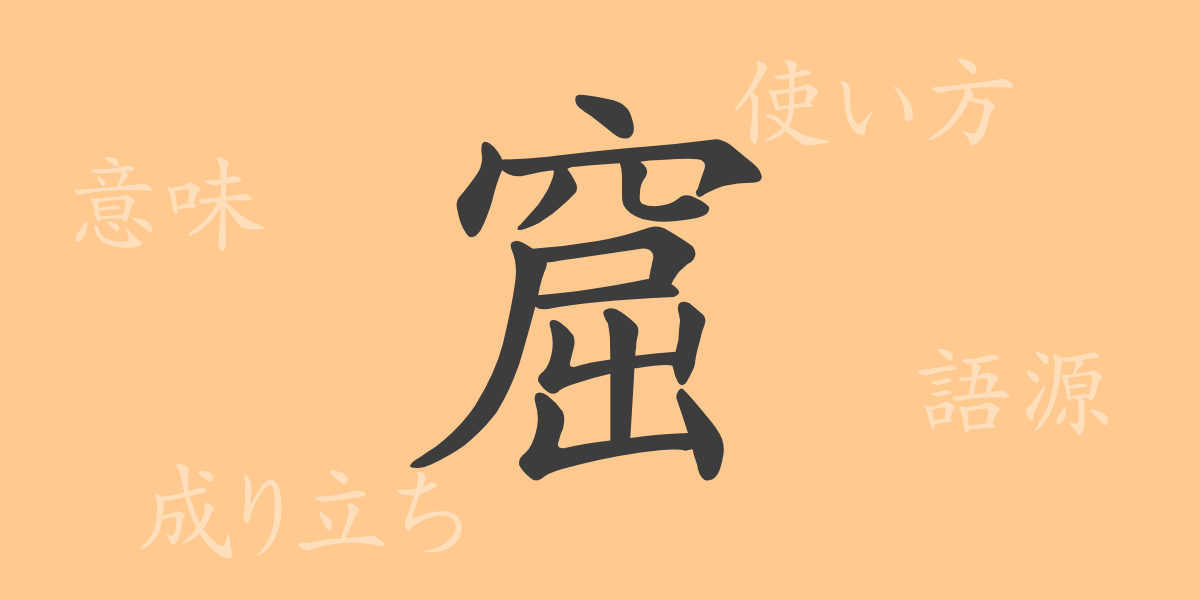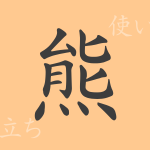One of the rich expressions in the Japanese language is “窟(くつ).” This kanji, which evokes images of caves and hideouts, is used in many idioms and phrases, reflecting the depth of Japanese culture and language. In this article, we will delve into the origins, meanings, uses, and various idioms associated with “窟(くつ).” Let’s explore the charm of “窟(くつ)” as a common kanji in Japanese.
Origin of 窟(くつ) (Etymology)
The kanji “窟(くつ)” has been used since ancient China to mean cave or grotto. It combines “屵,” which means rock, with “穴(あな),” which means hole, literally representing “a hole in the rock.” Over time, this kanji was introduced to Japan, where it became integrated into the Japanese language and culture.
Meaning and Usage of 窟(くつ)
The primary meaning of “窟(くつ)” is a natural cavity in rock or soil, i.e., a cave. Figuratively, it can also indicate a hidden or secret place. It is mainly used as part of compound words (熟語), rather than on its own.
Readings, Stroke Count, and Radical of 窟(くつ)
“窟(くつ)” is a kanji with unique readings in Japanese.
- Readings: On’yomi (Chinese reading) – “クツ(くつ)”; Kun’yomi (Japanese reading) – “いわや”
- Stroke count: 13 strokes
- Radical: 穴部(あなぶ) (hole)
Idioms, Phrases, and Proverbs Using 窟(くつ)
There are several idioms and phrases that include “窟(くつ),” demonstrating the kanji’s rich meaning.
- 「洞窟(どうくつ)」: A large natural cavity in rock or soil.
- 「山窟(さんくつ)」: A cave in the mountains.
- 「岩窟(がんくつ)」: A cave formed in rock or a rocky mountain.
- 「窟宅(くったく)」: A dark, narrow dwelling, similar to a cave.
- 「窟穴(くつけつ)」: A hole or cave in rock or soil.
These idioms and phrases not only convey literal meanings but also figurative ones. For instance, “窟宅(くったく)” can refer to living in an actual cave or be used metaphorically to describe a very cramped and dark dwelling.
Conclusion on 窟(くつ)
The kanji “窟(くつ)” is essential in Japanese for expressing the natural beauty of formations and hidden spaces. Through idioms and phrases, we can see its wide range of uses. By focusing on this single kanji, we can rediscover the depth and richness of the Japanese language. Next time you encounter “窟(くつ)” in daily life, consider the history and meaning behind it.

























